Out of obscurity: Akron Symphony works to share genius of composer Julia Perry with world
- Oops!Something went wrong.Please try again later.
Julia Perry, who grew up in Akron and went on to become a celebrated composer in Europe, ended up dying in obscurity in Akron in 1979, at age 55.
She was a prolific neoclassical composer who created more than 100 works, including three operas and 12 symphonies. Perry's star rose quickly as a young woman in her 20s and 30s.
One of her works, the 1965 "Short Piece for Orchestra," was recorded by the prestigious New York Philharmonic. But that was her last high-profile engagement.
Today, both her work and her story is largely unknown. The Akron Symphony Orchestra's mission is to change that by bringing the story of Perry's life as well as her music to the world.
Christopher Wilkins, the orchestra's music director, shared the uniquely Akron story "Akron's Julia Perry: How Does a Shadow Shine?" at the Akron Roundtable Dec. 8 at the University of Akron's Quaker Station. He talked about his extensive research over the last five years unearthing details about Perry's life and work as a young Black composer, pianist and conductor.
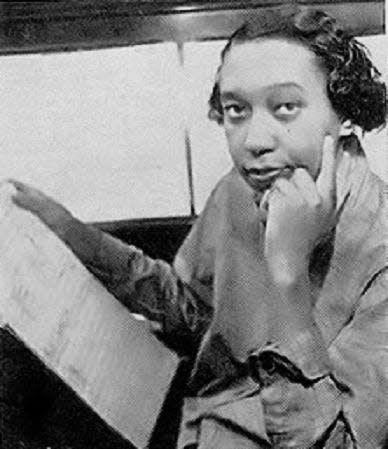
"Hers is an Akron story through and through. Raised, educated, celebrated, supported — and ultimately ignored — in Akron, it is likely that no more important figure in classical music has ever emerged from this city," Wilkins said in his talk.
Perry was born in Lexington, Kentucky, in 1924, the fourth of five girls born to Dr. Abraham and America Perry. Her family moved to Akron in 1934.
She grew up gifted in voice, violin, piano and composition in Akron in the 1930s and '40s. Her family lived in two different homes in Akron's predominantly Black Spicertown neighborhood. The neighborhood, razed in 1964 to make way for campus expansion, sat where UA's current athletic fields are now located.
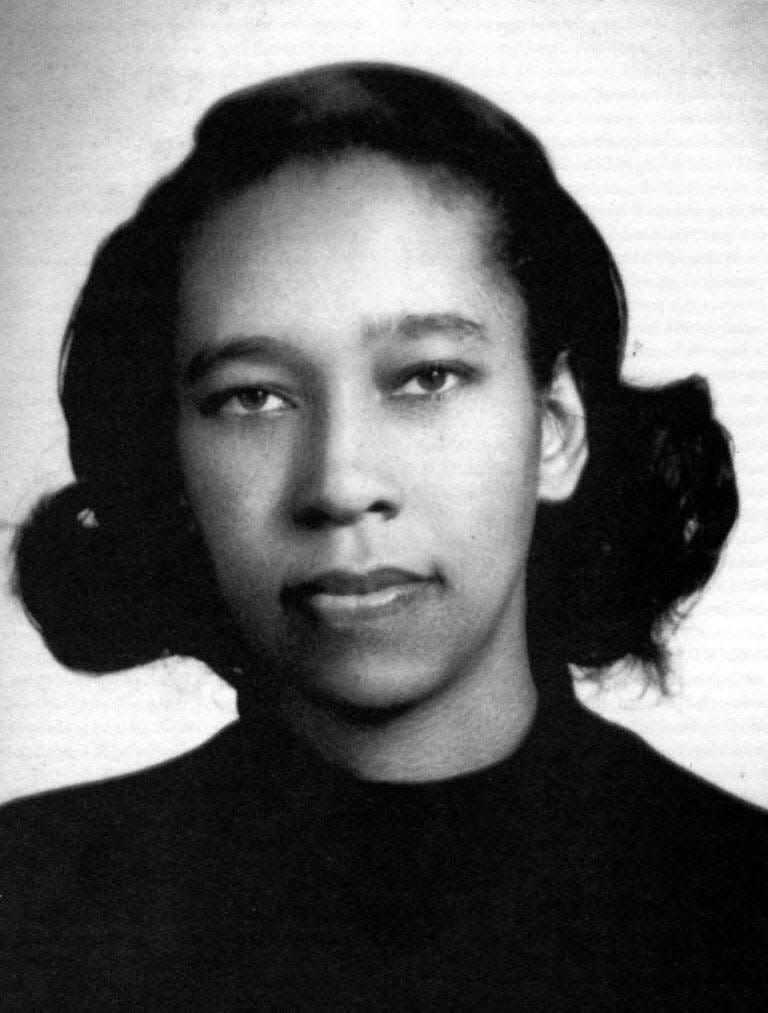
Perry graduated from Central High School and after her freshman year at the University of Akron, attended Westminster Choir College in Princeton, New Jersey — one of the top music schools in the world — with the help of an award from the Knight Memorial Education Fund established by John S. and James L. Knight.
She went on to study at the famed Juilliard School of Music, won a prestigious fellowship at Tanglewood Music Festival (home of the Boston Symphony) and won two Guggenheim fellowships that allowed her to study, compose and perform in Italy beginning in 1952. Perry was featured in Life Magazine while living in Florence, in an article about American women overseas.
She also studied composition with celebrated teacher Nadia Boulanger in France and was interviewed and encouraged by famed American classical composer Aaron Copland just before her 30th birthday.

Julia Perry was embraced in Europe, neglected in U.S.
Perry's music is a combination of her training in the U.S. and Europe as well as her African American heritage. As a young woman, she traveled widely in Europe, performing, conducting and lecturing as an ambassador for the U.S. Information Agency and conducting the prestigious BBC Philharmonic and Vienna Philharmonic.
But those glory years didn't last.
After working in Italy off and on for several years, "doors were not open to her" as they had been in Europe when she returned to the United States, Wilkins said.
Perry, who had hoped to make a living as a full-time composer, began teaching private piano lessons in New York. She returned home to Akron in 1960, where she worked in an apartment above her father's doctor's office.
She did have three of her works recorded in 1960, 1961 and 1965, on the niche label Composers Recordings Inc. Those works — "Stabat Mater," "Short Piece for Orchestra" and "Homunculus C.F." — are the only three that have been performed with some frequency since.
Jazzy twist to Nutcracker: Orchestra offers cool jazz twist to holiday favorite with Ellington's 'Nutcracker Suite'
Perry's Violin Concerto was published by Carl Fischer in 1968, but never received a performance until UA graduate Roger Zahab, who remembers Perry, gave the world premiere with the University of Pittsburgh Orchestra in February. Perry didn't receive any other offers from publishers for the rest of her life.
The Akron Symphony Orchestra has been performing her works in recent years, with the latest being the world premiere of Perry's 1953 "Fragments from the Letters of Saint Catherine" Nov. 12 in Akron.
In 2021, the orchestra also performed her "Stabat Mater" and "Short Piece for Orchestra" and "Prelude for Piano," Perry's earliest preserved work that she composed when she was 21 or 22.
Akron symphony: Spouses among Akron Symphony musicians anticipating long-awaited return
For the latter piece, the strings arrangement for "Prelude for Piano" that Perry referenced in brackets at the top of her composition was never found. The Akron Symphony Orchestra performed an orchestration by composer and violinist Zahab, who teaches at the University of Pittsburgh.
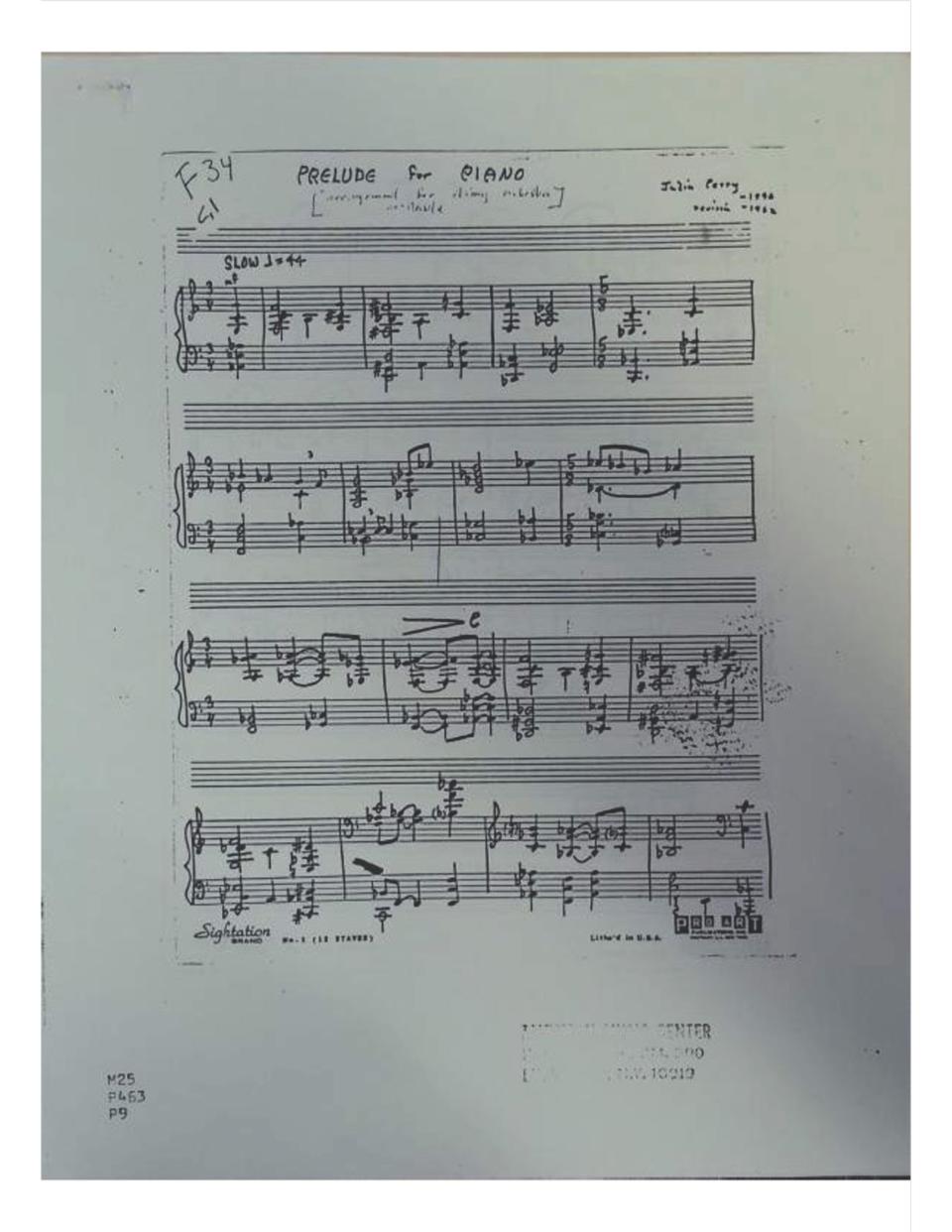
Julia Perry's return to Akron
According to author Helen Walker Hill, who wrote "From Spirituals to Symphonies: African American Women Composers and Their Music," Perry had a rare medical condition called acromegaly that likely began in her late 20s. It caused her body to produce too much growth hormone, which enlarged her bones and tissues.
Friends around that time reportedly said that Perry's disposition changed dramatically. According to Wilkins, Perry was a very private person who did not marry or have children.
Her story after returning to Akron is a sad one.
Beginning in 1970, while she was living with her mother on Euclid Avenue, she suffered a series of strokes that left her paralyzed on her right side, unable to speak and wheelchair-bound for the rest of her life.
Nevertheless, Perry learned how to write with her left hand and continued to compose. According to Wilkins, trying to decipher her hand-written scores, especially post-stroke, has been difficult.
In March, the Akron Symphony read a number of Perry's unknown works, including the haunting Symphony No. 10 "Soul Symphony," which was the first time the music had ever been heard. The symphony did not publish it or perform it publicly.
Only 18 of Perry's works have been have been published and therefore performed or recorded. Most of her 100-plus works have not been published.
Holiday shows in Akron: Catch traditional holiday favorites, more with festive Akron-area performances
"Now the world has changed. There has been a dramatic surge of interest in the music of Julia Perry in recent years. But without a mechanism in place to negotiate publishing rights, none of the close to 100 unpublished works have been available to anyone," Wilkins said.
Unfortunately, Perry did not organize her catalogue of music later in life or give it to a library or university. She died from cardiac arrest April 24, 1979, and is buried in Glendale Cemetery in Akron.
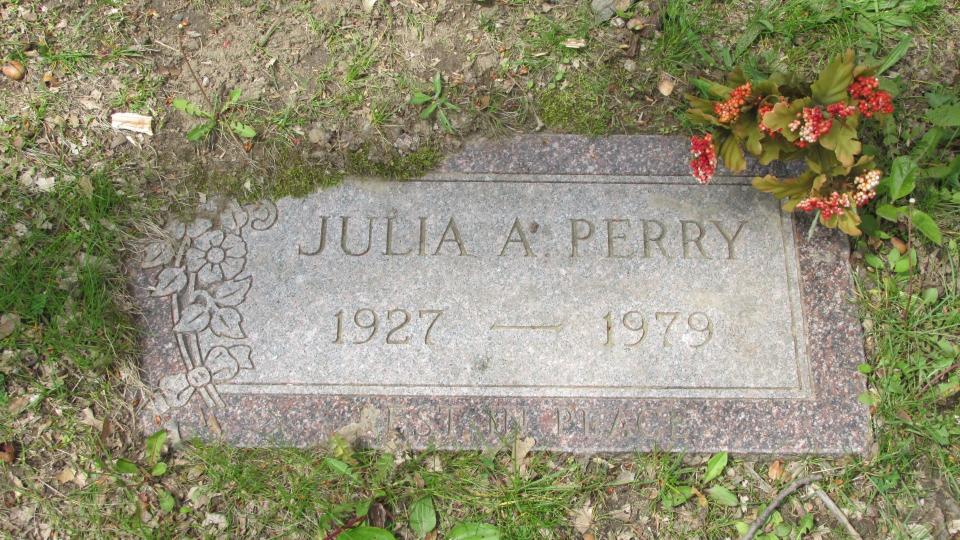
Julia Perry's heirs remain a mystery
Perry's music is protected through 2049, which means it can't be published, performed or recorded without permission from the heir or heirs of her estate. Her older sister, Lucie Perry Bigby, had represented her estate, but after Bigby's death in 1991, no other heirs came forth.
Publishers of Perry's 18 works have been escrowing performance royalties since then. But because no heirs have been identified, there's no way to gain permission to publish or perform any more of Perry's music or to gather her manuscripts or papers that may exist in libraries or publishers' archives.
"It's been a hot mess. And a terribly sad one, because the quality of her work is so high," Wilkins said.
A recent breakthrough in the Julia Perry heir mystery means there may be light at the end of the tunnel.
Musician Angela Hammond of Lexington, who has been working for years on a book about the Perry family, discovered earlier this year that Julia's sister Lucie's daughter, Rhoda, was alive and her attorney was Kevin Davis of Akron.
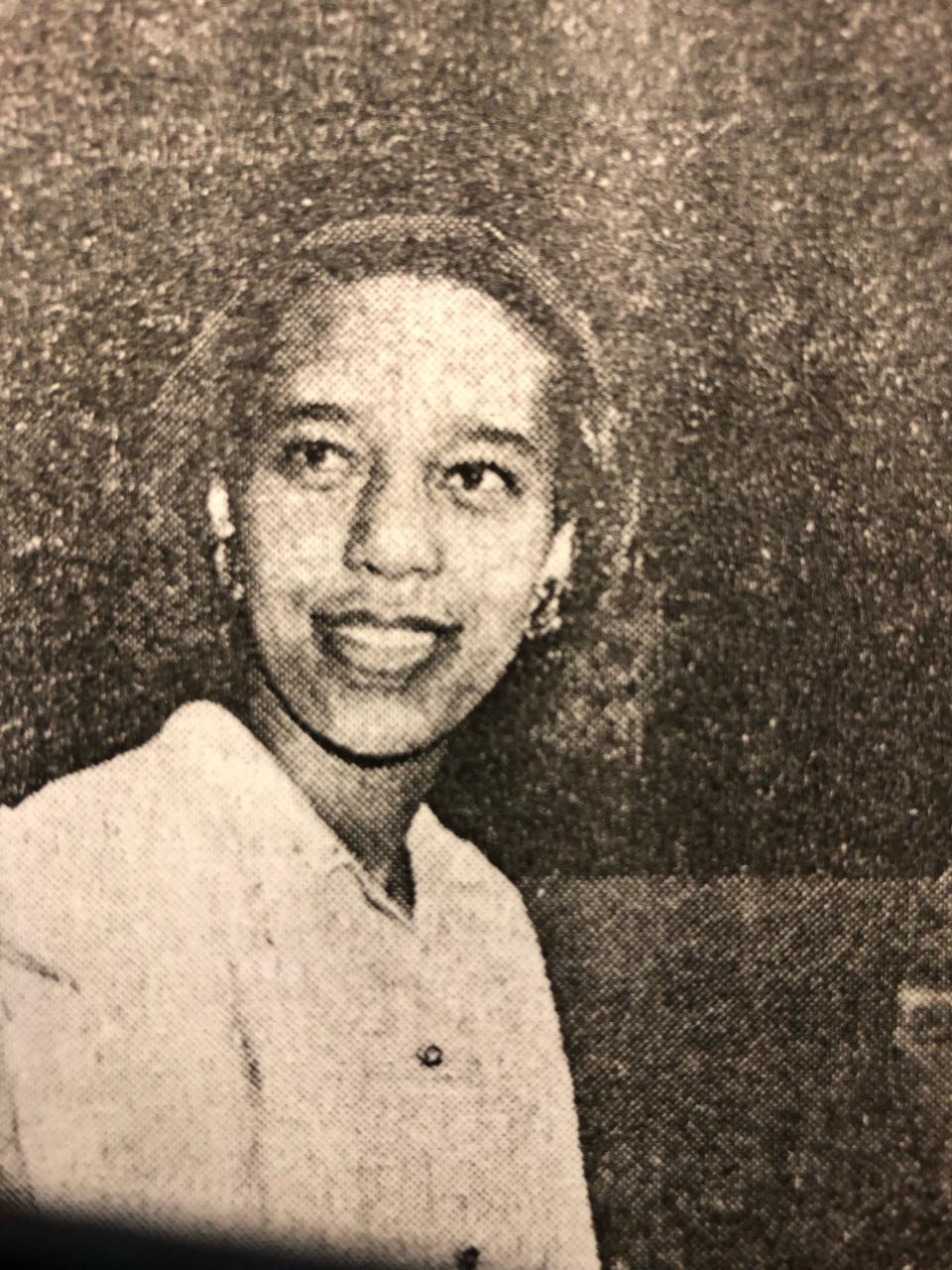
Akron attorney and history expert Dave Lieberth reached out to Davis, who reported that Rhoda had recently passed away. Davis has now been appointed by Summit County Probate Judge Elinore Marsh Stormer as administrator of Julia Perry's estate.
Perry did not probate any property. According to Stormer, as a Black, single woman in the 1970s, Perry probably had limited access to property without a male co-signer.
Last week, Davis told Wilkins that the next step is to gather and identify Perry's assets and determine and confirm her heirs. Wilkins said that includes Perry's sister Alycia Berry, who is believed to have moved from Shaker Heights to Queens to live with her daughter or niece.
"There is now a legal process in place to help accomplish what Julia Perry worked so tirelessly — and fruitlessly — to achieve: publication, performances and recordings of her works," Wilkins said.
His research has been aided by UA archivist Vic Fleischer; Hammond; Akron native Louise Toppin, founder of the nonprofit Videmus and its African Diaspora Music Project; and James Blachly, associate editor of the African Diaspora Music Project database.
Looking ahead: Akron Symphony to return to stage with summer concerts
Now, the world can learn about The Julia Perry Project through a website the Akron Symphony launched Dec. 8 at akronsymphony.org/juliaperry.
It includes her biographical information, links to resources and recorded performance; and videos of interviews with Zahab and Perry family friend Ophelia Averitt, formerly president of the Akron NAACP. It also features a list of Perry's published and unpublished works.
The information from The Julia Perry Project will become part of the African Diaspora Music Project.
"The vast majority of her music is today completely unknown. Even among people steeped in our rarefied field, most don't know Julia Perry's music. I am embarrassed to say that, a few years ago, after serving this orchestra for more than a decade, I too did not even recognize her name. No current project is timelier than our effort to make her music known throughout the world," Wilkins said.
Arts and restaurant writer Kerry Clawson may be reached at 330-996-3527 or kclawson@thebeaconjournal.com.
This article originally appeared on Akron Beacon Journal: Akron Symphony brings hometown composer Julia Perry's story to world

